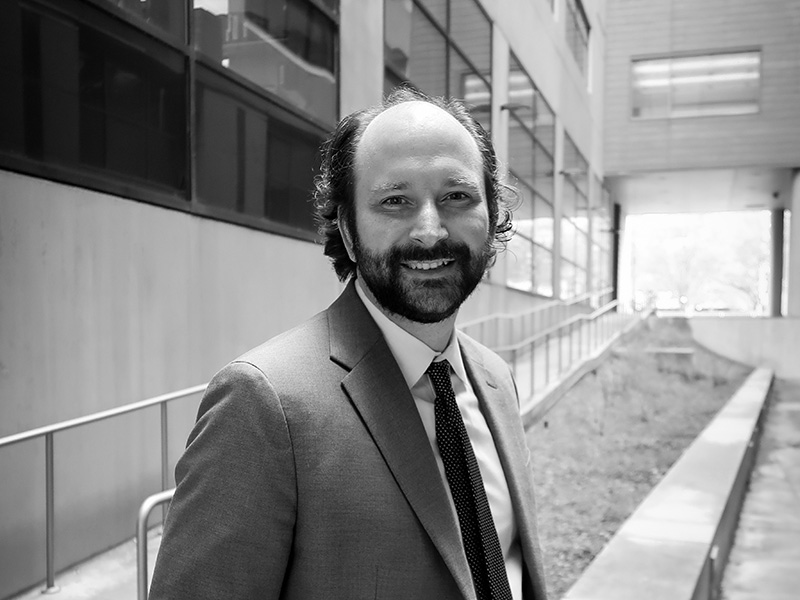Nathan Carlin, PhD

Professor, Health and Human Spirit Program
Samuel E. Karff, D.H.L., Chair in the John P. McGovern,
M.D., Center for Humanities and Ethics
In many ways, the pandemic that struck in 2020 was very depressing. It derailed so many of the happy things that we were planning for the spring: banquets, graduations, and other celebrations. Personally, it cancelled a conference that I had been planning for a year.
But it wasn’t all bad. In terms of pivoting, the pandemic happened
at an ideal time for my own teaching schedule, which gears down in March, after being very heavy in January and February. So, I had time to prepare the move to online teaching, which many professors across the country did not have.
“We need to keep what was better.”
I was very skeptical of online teaching at first, since many of our classes are seminars. I teach, for example, a seminar for MS4s called pathographies of mental illness, which meets three times a week for three hours each session – this course lasts for a full month. Before the pandemic, I doubt I would have ever taught a seminar online. But, through this experience, I found that the technology works very well and that the experience was not all that different than in-person. In some ways, it was even better, in that only one person can talk at a time. Moving forward, I will keep some of this teaching online even when the pandemic is over, unless students object and really want to meet in-person again. My guess, though, is that they will appreciate the convenience of these online seminars, especially during interview season.
I also found that I was more productive working from home than in the office, for very simple reasons. There was no commute to work. There was no travel time to meetings, which can add up, even if it is a 5-minute walk to and from a meeting, plus any small talk after these meetings with friends and colleagues.
I would say, though, that there is something lost in only working from home, as I have done for a year now, and that is the synergy and creativity of in-person meetings of the McGovern Center for Humanities and Ethics. Also, it is harder to bounce ideas off other team members in the moment if everyone is working from home. It seems to me that, in the future, an ideal situation for productivity and creativity would be some kind of a flexible, hybrid model. It seems as though just going back to the model of pre-COVID times, pure and simple, would seem to be less productive. We need to keep what was better.
Balancing work and family took some effort, because we have a toddler. When the numbers in Houston would spike, we would withhold our daughter from daycare. To manage this, my wife and I would split our days, giving each other 6 hours of protected time during the work day (6 a.m. to noon, and noon to 6 p.m.), and we would work evenings as well, when our daughter was asleep. This worked for us, because we both have flexible jobs, but it did mean that we had to communicate our schedules on a daily basis in order to be able to attend various work meetings as needed.
Because I am an introvert, and probably a workaholic, I don’t think the pandemic affected me as much as many other people. I really don’t mind being alone. But, even for me, I do miss my friends, coffee shops, and restaurants in Montrose. I really like Anvil and all of Chris Shepherd’s restaurants. It’ll be good when the pandemic is behind us!
